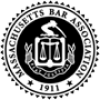Combined Experience
Work-Related Auto Accidents – Going And Coming Rule
Getting to and from a place of employment is an everyday event for many people. Being able to get to your job is a natural prerequisite to be able to do your job. They go hand in hand. But what if you sustain an injury on the way to, or on the way home from work? Are these injuries covered under the Massachusetts Workers’ Compensation Act? The answer is… sometimes.
The Going and Coming Rule
The Going and Coming Rule applies to the regular, normal commute of individual workers. “It is generally held that where the employee has fixed hours of work and a fixed place of employment injuries going to and from work do not arise in the course of employment unless the employee is on the employer’s premises.” See Locke, Mass. Practice, Workmen’s Compensation, Section 262.
Essentially, what this rule says is that injuries sustained on the way to work in the morning, or on the way home from work at the end of the day, are not covered under the Massachusetts Workers Comp Act, and thus, the Employee injured in such a manner is not entitle to Workers Compensation benefits. The reasoning behind this rule is that there has to be a line drawn somewhere where an employer’s/insurer’s liability stops and the employees are not coverd under the Act.
Exceptions To The Going And Coming Rule
Some common exceptions to this rule are the following:
- Traveling Workers – workers who travel for their job, such as on a business trip to another city, are generally provided 24-hour protection. The same is said for employee’s whose job requires traveling, such as a delivery driver.
- Special Errand – workers who are sent on a special errand (ie, something outside of their normal work activities) are covered if they are injured traveling to, from, or on the special errand.
- Going From One Job Duty To Another – many workers work offsite, or on the road, and travel from certain work obligations during the course of the day, like a visiting nurse. Someone injured traveling between work obligations is generally covered.
- On Employer’s Premises – if you make it to work and are on the employer’s premises, you are generally covered.
- Common Areas – certain common areas have been found to be within the employer’s premises exception, such as parking lots furnished by the employer, or even those which the employer merely has a right of control or passage to where the injury took place (ie, a walkway from the garage to the employer’s building)
The Going and Coming Rule has historically been one of the most frequently litigated topics at the Department of Industrial Accidents. Case law has shaped how this rule is applied, and although the rule and it’s multiple exceptions are fairly well established, unique situations frequently arise that have the potential to reshape or change how this rule is handled.
Third Party Liability
Any time an employee is injured on the job as the result of a motor vehicle accident, there is the potential for another, separate avenue of recovery in the form of a third party action. This is a law suit against the other individual, or entity, which caused the motor vehicle accident. While in a workers compensation claim, fault is never an issue, in a third party auto accident claim, fault becomes highly relevant. If the employee who was injured in the accident ran a red light which caused the accident, there would likely be no third party action. If the accident were caused by another individual running the red light, however, there may be.
Third party actions can arise any time a work injury is caused by the fault of another person, or entity, aside from the Employer. Employers who are at fault generally escape individual liability for the work injury. The sole remedy is the workers compensation claim. This is known as the exclusivity provision, and it is one of the foundation principles behind the workers compensations system….for better or for worse.
Work injuries are serious matters. They can range from very simple to extremely complex. No work injury is the same. The path such an injury takes through the workers compensation system is unique to every case. Variable exist all the way through the process. No two cases are exactly the same.
Troupe Law Office
If you have sustained an injury at work, you need an experienced Massachusetts Workers Comp lawyer at your side. A workers compensation attorney can ensure that your rights are protected.
Troupe Law Office is one of the most respected firms in Massachusetts, with close to 50 years of experience in representing injured workers and their families following work related injuries. Call us any time for a free consultation of your case.








